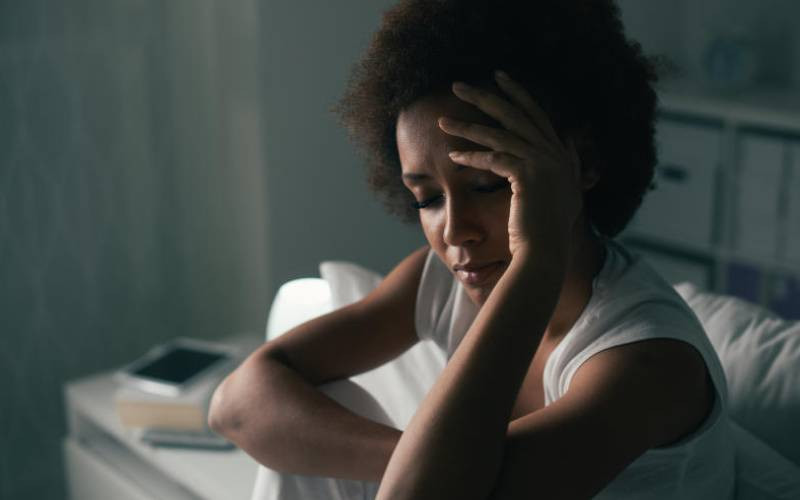
Imagine this: it's 2 a.m., and you're tossing and turning in your bed, your mind racing with thoughts, worries, and the pressure of tomorrow's to-do list. Unfortunately, this scenario is all too familiar for many in our fast-paced world. Insomnia isn't just a fleeting inconvenience; it's a serious health concern that can have lasting effects on our physical and mental well-being.
In the hustle and bustle of our contemporary world, sleep often seems like an elusive dream. We're living in an age of constant stimulation where the boundaries between day and night have blurred significantly. And where a restful sleep can become an increasingly precious commodity.
What is Insomnia?
Insomnia, the persistent inability to fall asleep or stay asleep, is a condition that affects countless individuals worldwide. Research shows that roughly one in three adults worldwide have insomnia symptoms with women being more susceptible.
The Psychological Rollercoaster of Insomnia
Insomnia often has its roots in psychological factors -stress, anxiety and depression are common culprits. The worries and pressures of modern life, from work deadlines to financial concerns, can easily seep into our minds as we lie in bed, making it difficult to relax and fall asleep. The more we stress about not sleeping, the harder it becomes to actually drift off. It's a vicious cycle.
Moreover, the constant use of electronic devices, such as smartphones and computers, exposes us to blue light, which can disrupt our body's production of melatonin, the hormone responsible for regulating our sleep-wake cycle. This can further exacerbate sleep problems, as our circadian rhythms become confused by artificial light.
Understanding the Circadian Rhythm
- How can I help my kids build stronger social skills?
- Money talk at the dinner table: Teach children value
- How to prepare your toddler for a new sibling
- Teaching kids to choose the right company early
Keep Reading
Now, let's take a moment to explore the concept of circadian rhythms. Think of it as your body's internal clock, regulating the ebb and flow of your energy levels and alertness throughout the day. In an ideal world, our circadian rhythms would synchronize with the natural cycle of day and night. However, modern life often pulls us away from this natural balance.
Our circadian rhythms are influenced by the amount of light we're exposed to during the day and the absence of it during the night. The blue light emitted by screens and artificial lighting can throw this delicate balance off-kilter. This disruption can confuse our bodies, making it harder to fall asleep when we want to and to wake up feeling refreshed.
Reclaiming a Good Night's Sleep
So, what can we do to combat insomnia in our contemporary world? By embracing a concept called Sleep Hygiene.
Here are some sleep hygiene tips that can help, even if you're not a sleep expert:
Establish a Sleep Routine
Try to go to bed and wake up at the same time every day, even on weekends. This helps regulate your circadian rhythm.
Create a Relaxing Bedtime Ritual
Engage in calming activities before bed, such as reading a book, taking a warm bath, or practising relaxation exercises.
Limit Screen Time
Power down electronic devices at least an hour before bedtime to reduce exposure to disruptive blue light.
Mindfulness and Meditation
Practice mindfulness or meditation techniques to manage stress and anxiety, which are common triggers for insomnia.
Consult a Professional
If insomnia persists, don't hesitate to seek help from a healthcare provider or a psychologist. They can provide guidance and treatments tailored to your specific needs.
 The Standard Group Plc is a multi-media organization with investments in media
platforms spanning newspaper print
operations, television, radio broadcasting, digital and online services. The
Standard Group is recognized as a
leading multi-media house in Kenya with a key influence in matters of national
and international interest.
The Standard Group Plc is a multi-media organization with investments in media
platforms spanning newspaper print
operations, television, radio broadcasting, digital and online services. The
Standard Group is recognized as a
leading multi-media house in Kenya with a key influence in matters of national
and international interest.


